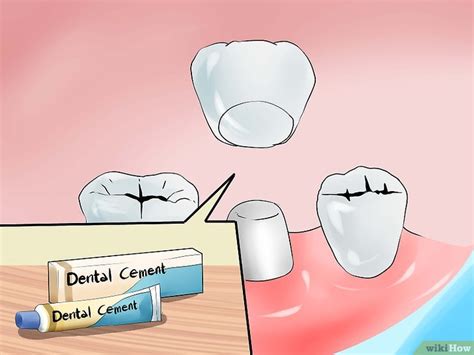Avoiding Crown Issues: A Preventive Approach
Dental crowns are a fantastic solution for restoring damaged or decayed teeth, providing strength, protection, and improved aesthetics. However, the longevity and success of a crown depend significantly on proper preventative care. This comprehensive guide will delve into the strategies you can employ to avoid common crown problems and maintain optimal oral health. We'll explore everything from pre-crown preparation to long-term maintenance, ensuring your crown remains a beneficial part of your smile for years to come.
What Causes Crown Problems?
Before we delve into prevention, understanding the root causes of crown issues is crucial. Problems can arise from various factors, including:
- Poor Oral Hygiene: Inadequate brushing and flossing lead to plaque and tartar buildup around the crown margin, potentially causing inflammation, gum disease (periodontitis), and ultimately, crown detachment.
- Bruxism (Teeth Grinding): This habit exerts excessive pressure on teeth, increasing the risk of crown fracture or chipping.
- Trauma: Accidents or injuries can damage crowns, leading to cracks or displacement.
- Underlying Tooth Decay: If the underlying tooth wasn't adequately prepared before crown placement, decay can reappear, jeopardizing the crown's stability.
- Inadequate Cementation: Poorly cemented crowns are more prone to loosening and falling out.
How to Prevent Crown Problems: A Step-by-Step Guide
1. Maintaining Excellent Oral Hygiene
Brushing: Brush your teeth twice daily with a fluoride toothpaste using gentle, circular motions. Pay particular attention to the gum line around the crown, ensuring you remove any food particles or plaque.
Flossing: Floss daily to remove food particles and plaque from between your teeth and under the crown margin. Use floss threaders if necessary to reach tight spaces.
Mouthwash: An antimicrobial mouthwash can supplement brushing and flossing, helping to control bacteria and reduce inflammation.
2. Protecting Against Bruxism
If you grind your teeth, consider using a custom-made nightguard. This protective device will prevent the excessive pressure from damaging your crowns and natural teeth. Your dentist can create a comfortable and effective nightguard tailored to your mouth.
3. Avoiding Harmful Habits
Refrain from chewing on hard objects like ice, pens, or fingernails. These actions can put significant stress on your crown and potentially cause damage.
4. Regular Dental Checkups
Schedule regular checkups and cleanings with your dentist. These appointments allow for early detection of any potential problems with your crown and provide an opportunity for professional cleaning to remove plaque and tartar buildup. X-rays can also reveal issues not visible to the naked eye.
5. Reporting Any Unusual Symptoms
If you experience any sensitivity, pain, loose feeling, or changes in the appearance of your crown (like chipping or discoloration), contact your dentist immediately. Early intervention is critical in preventing more significant problems.
Addressing Common Concerns
What if my crown feels loose?
A loose crown requires immediate attention. Do not attempt to fix it yourself. Contact your dentist right away. They will assess the situation and determine the best course of action, which may involve re-cementing the crown or other necessary repairs.
Can I whiten my teeth if I have a crown?
Professional teeth whitening may not affect your crown, which is typically made of porcelain or metal. However, it's essential to discuss whitening options with your dentist to ensure it won't harm your crown or the surrounding teeth.
How long do crowns last?
With proper care, crowns can last for many years, even a decade or more. However, their lifespan depends on various factors, including oral hygiene, habits, and the material used.
What are the signs of a failing crown?
Signs of a failing crown include pain or sensitivity, a loose-fitting crown, chipping or cracking of the crown, discoloration, or gum irritation around the crown.
By diligently following these preventative measures, you can significantly extend the life of your dental crowns and maintain a healthy, beautiful smile. Remember, proactive care is always better than reactive treatment. Consult your dentist regularly for personalized advice and to ensure the ongoing health of your teeth and crowns.

